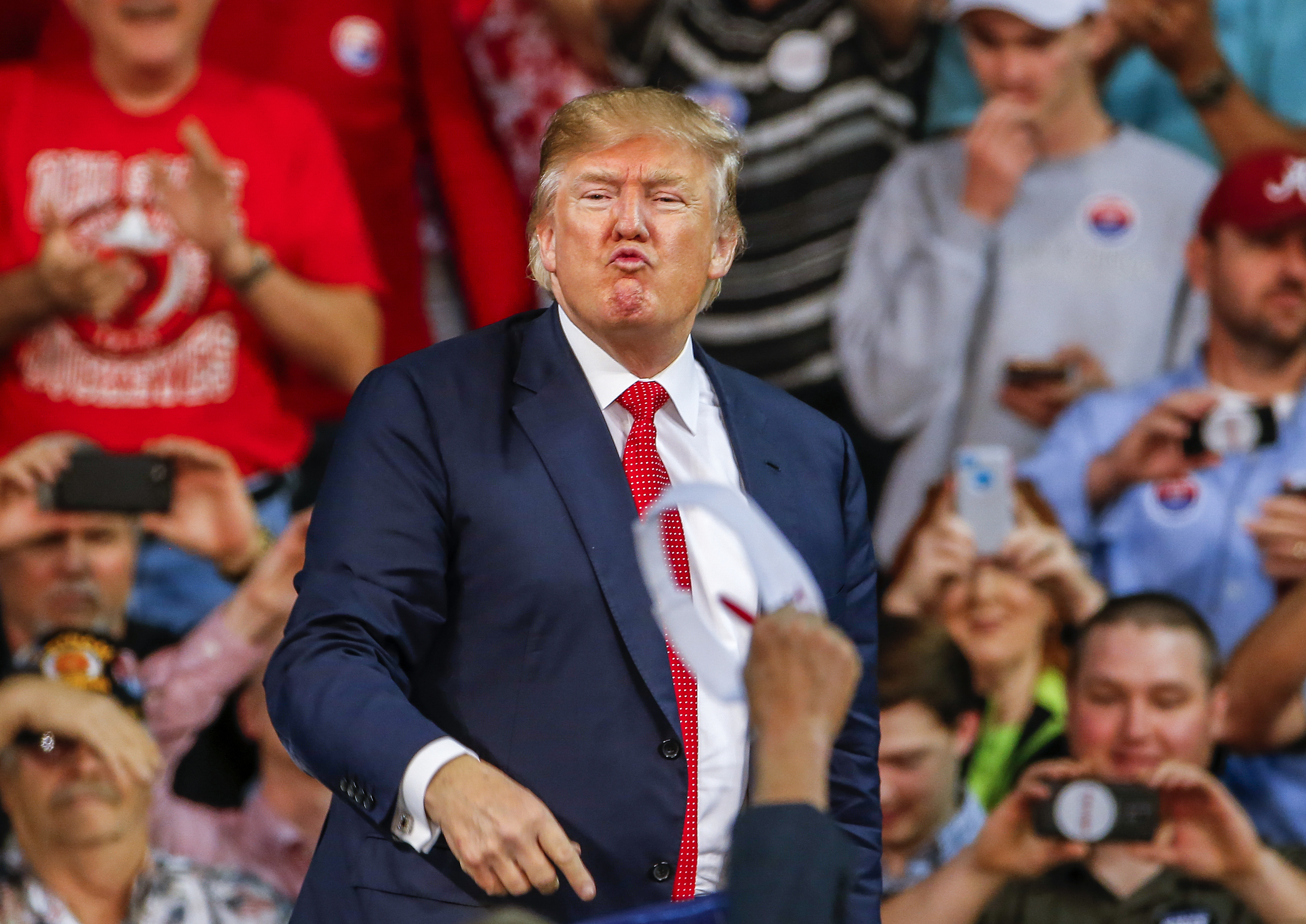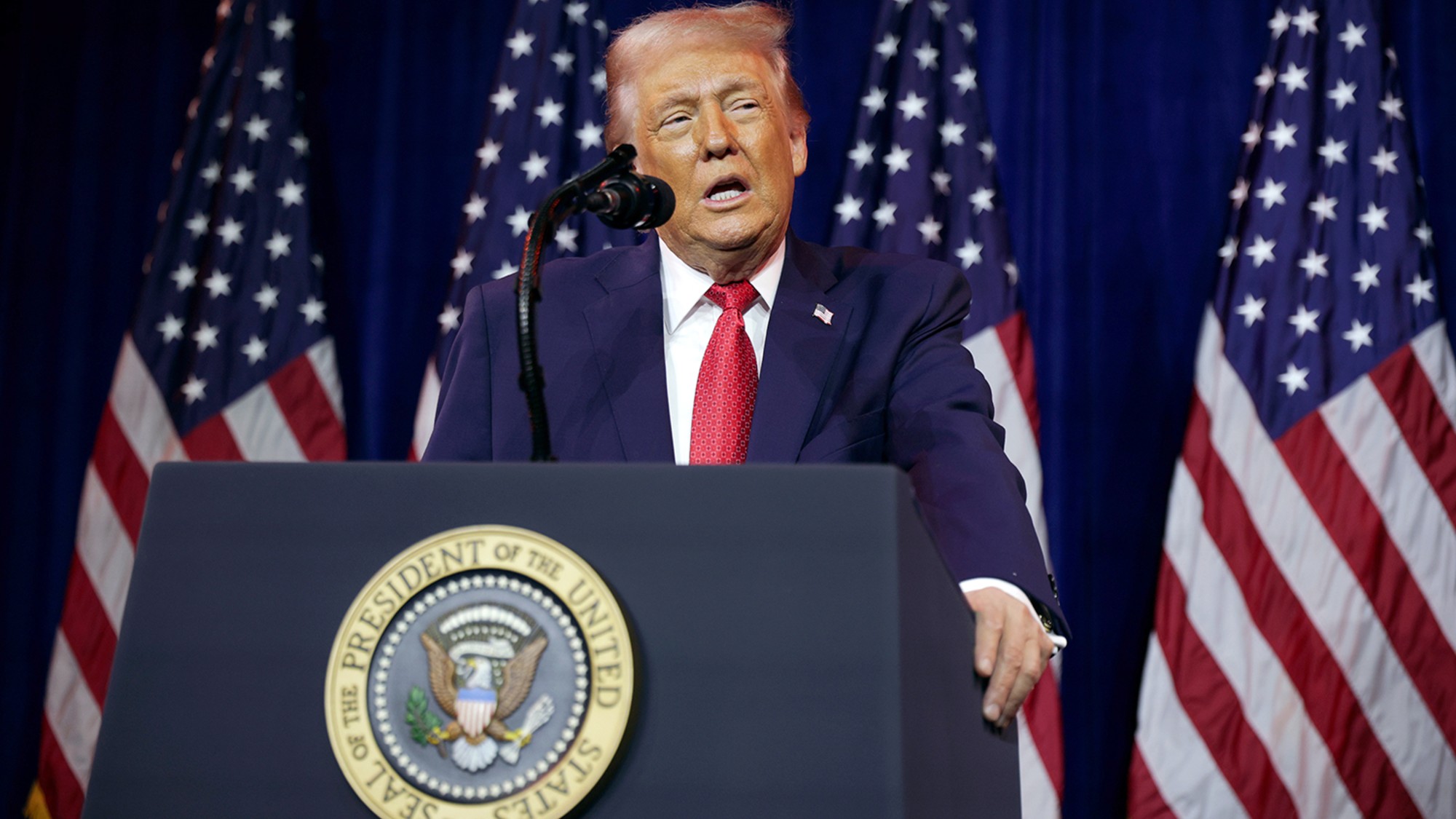It really is this simple: Donald Trump should not be president of the United States
It's time for the GOP to put country ahead of party


The #NeverTrump movement is rightfully disgusted and deeply concerned about the prospect of Donald Trump winning the presidency. These #NeverTrump conservatives have admirably broken from the Republican National Committee, which seems to care far more about avoiding "an embarrassing spectacle" at the convention than about sparing the party from being enduringly identified with Trump.
I admire and sympathize with #NeverTrump motives. But I've been unable to shake the feeling that the movement's goal is not just futile but also somehow illegitimate. Trump won the nomination fair and square. He pulled in nearly 45 percent of the vote in the GOP primary, which is on the low end historically but not at all unprecedented. He carried 36 states and ended up with 300 more delegates than he needed to clinch the nomination. Roughly 14 million people voted for him, which is 4 million more than Mitt Romney won four years ago. All of which means that Trump seems to deserve the honor of standing as the Republican Party's nominee for president.
The GOP should dump Trump anyway.
The Week
Escape your echo chamber. Get the facts behind the news, plus analysis from multiple perspectives.

Sign up for The Week's Free Newsletters
From our morning news briefing to a weekly Good News Newsletter, get the best of The Week delivered directly to your inbox.
From our morning news briefing to a weekly Good News Newsletter, get the best of The Week delivered directly to your inbox.
Yes, an anti-Trump coup (in which delegates are given the freedom to vote their consciences) would most likely fail. And even if it succeeded, it would almost certainly guarantee a GOP loss in November. Bill Kristol may like to indulge in fantasy-tweets about how an alternative nominee could win in November. But the result would almost certainly be a badly fractured party, with probably around a third of its voters bolting to a protest candidate or just staying home on Election Day.
The case for a coup has different grounds. It's not about the conservative movement or the Republican Party's chances in the 2016 election. It's about what's best for the country.
Since he clinched the nomination, Trump has managed the seemingly impossible by becoming even more erratic and even less presidential than he was during the primaries. The insults, the transparent lies, the racist taunting and bullying, the demagoguery, the narcissistic self-obsession, the incapacity to take a position and stick to it, the failure to raise funds and manage a campaign — the man has no business running anything of public consequence, let alone the government of the most powerful nation on the planet.
It really is that simple: Donald Trump should not be president of the United States. If there is even a small chance of successfully deposing him at the convention — an act that, if it worked, would deprive him of the means to compete in the general election — it should be undertaken. The alternative is complicity in a politically reckless and blatantly irresponsible endeavor: the attempted election of a candidate who deserves to lose.
A free daily email with the biggest news stories of the day – and the best features from TheWeek.com
Beyond the dangers posed by Trump himself are more sweeping concerns. As Jonathan Rauch argues in his important cover story in The Atlantic, American politics has gone "insane" in recent years due to the unintended consequences of a series of democratic reforms since the 1970s. These reforms severely weakened, and in some cases eliminated entirely, numerous informal intermediary institutions in Congress and the parties that once served to stymie the self-interested egoism of individual politicians and channel the populist passions of grassroots movements. Individual politicians are now increasingly free agents out to do the bidding of the angriest and most agitated voters, with both sides using social media to circumvent the institutions that would have once hemmed them in.
Rauch's analysis is mostly correct — and he's right to conclude that the best thing we can do to prevent the further degradation of our political system is to reassert the vitality of those old, anemic intermediary institutions. Allowing delegates to opt for an alternative to Trump would be a powerful example of precisely such a reassertion. The party would be saying, in effect, that although Trump prevailed democratically, democracy isn't the only thing that counts. The party itself stands for something — not just popular government, but good government — and it would rather go down upholding a high standard than allow itself to be used as a hollow conduit for a demagogic rabblerouser to attain the pinnacle of power.
But wouldn't this backfire? If the party denied Trump the nomination at the Republican convention, wouldn't it fuel a "stabbed in the back" narrative that would inspire an even darker political movement four years from now? This was Jeet Heer's argument in a recent smart piece in The New Republic. The Trump voters are a problem for American democracy, Heer asserted, one that can only be solved by allowing them to get their nominee and then ensuring that he's roundly defeated at the ballot box in November.
It's a powerful argument, but I'm unpersuaded that a general-election defeat will "solve" the problem of the Trump voters. These voters are activated now. Trump has given them a style and the rudiments of a policy agenda that they clearly prefer to the offerings from either the Republicans or the Democrats. The only way to keep those voters from flocking to Trump four years from now, or rallying around some even-worse populist copycat, is for the GOP to woo them by adjusting its platform and agenda.
That's what both parties did after the original Populists upended American politics in the 1890s. It could happen again. It needs to happen again. And whether and how it happens will do far more to determine the future shape of the Republican Party than whether it dumps Trump this July.
In the short term, the party would most likely be wrecked. But that could well be less destructive, in the longer term, for both the party and the country, than trying to ride the Trump tiger. Exiling the Trump voters in 2016 would save the GOP from making a fatal compromise with competence and put it in a relatively strong position to run more compelling and capable post-Trump populists in the 2018 midterm and 2020 presidential elections. America would be much better for it.
At the end of the transformation, the Republican Party would look and sound quite a bit different than it has since Ronald Reagan took it over 36 years ago. But Republicans should consider that vastly preferable to allowing Trump to remake the party in his own Know Nothing image. We all should.
Damon Linker is a senior correspondent at TheWeek.com. He is also a former contributing editor at The New Republic and the author of The Theocons and The Religious Test.
-
 Why Saudi Arabia is muscling in on the world of anime
Why Saudi Arabia is muscling in on the world of animeUnder the Radar The anime industry is the latest focus of the kingdom’s ‘soft power’ portfolio
-
 Scoundrels, spies and squires in January TV
Scoundrels, spies and squires in January TVthe week recommends This month’s new releases include ‘The Pitt,’ ‘Industry,’ ‘Ponies’ and ‘A Knight of the Seven Kingdoms’
-
 Venezuela: The ‘Donroe doctrine’ takes shape
Venezuela: The ‘Donroe doctrine’ takes shapeFeature President Trump wants to impose “American dominance”
-
 The billionaires’ wealth tax: a catastrophe for California?
The billionaires’ wealth tax: a catastrophe for California?Talking Point Peter Thiel and Larry Page preparing to change state residency
-
 Bari Weiss’ ‘60 Minutes’ scandal is about more than one report
Bari Weiss’ ‘60 Minutes’ scandal is about more than one reportIN THE SPOTLIGHT By blocking an approved segment on a controversial prison holding US deportees in El Salvador, the editor-in-chief of CBS News has become the main story
-
 Has Zohran Mamdani shown the Democrats how to win again?
Has Zohran Mamdani shown the Democrats how to win again?Today’s Big Question New York City mayoral election touted as victory for left-wing populists but moderate centrist wins elsewhere present more complex path for Democratic Party
-
 Millions turn out for anti-Trump ‘No Kings’ rallies
Millions turn out for anti-Trump ‘No Kings’ ralliesSpeed Read An estimated 7 million people participated, 2 million more than at the first ‘No Kings’ protest in June
-
 Ghislaine Maxwell: angling for a Trump pardon
Ghislaine Maxwell: angling for a Trump pardonTalking Point Convicted sex trafficker's testimony could shed new light on president's links to Jeffrey Epstein
-
 The last words and final moments of 40 presidents
The last words and final moments of 40 presidentsThe Explainer Some are eloquent quotes worthy of the holders of the highest office in the nation, and others... aren't
-
 The JFK files: the truth at last?
The JFK files: the truth at last?In The Spotlight More than 64,000 previously classified documents relating the 1963 assassination of John F. Kennedy have been released by the Trump administration
-
 'Seriously, not literally': how should the world take Donald Trump?
'Seriously, not literally': how should the world take Donald Trump?Today's big question White House rhetoric and reality look likely to become increasingly blurred
